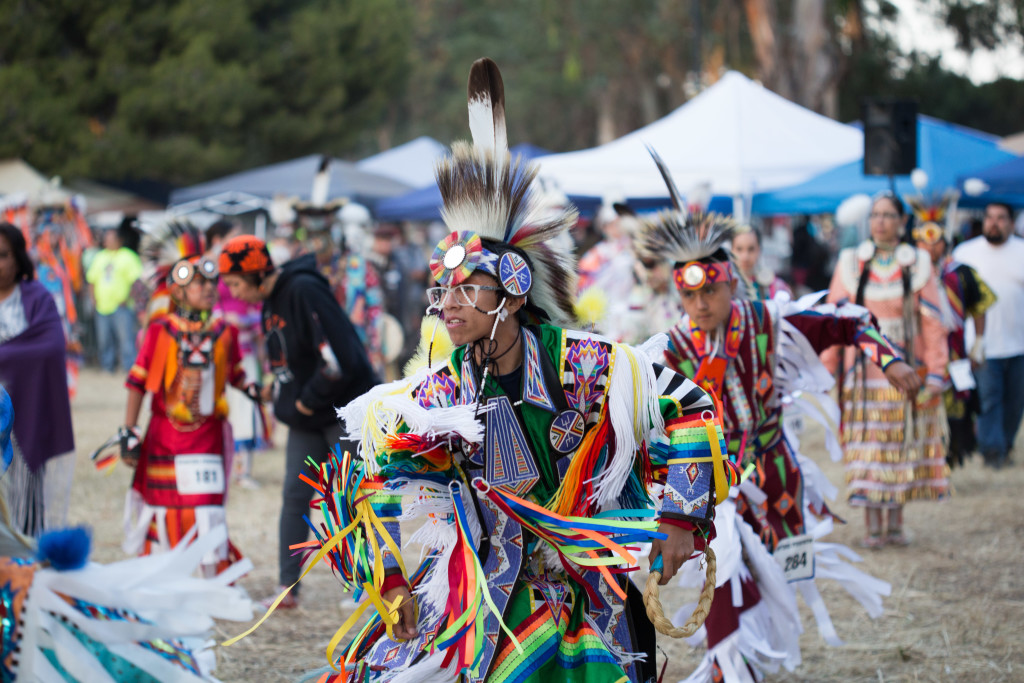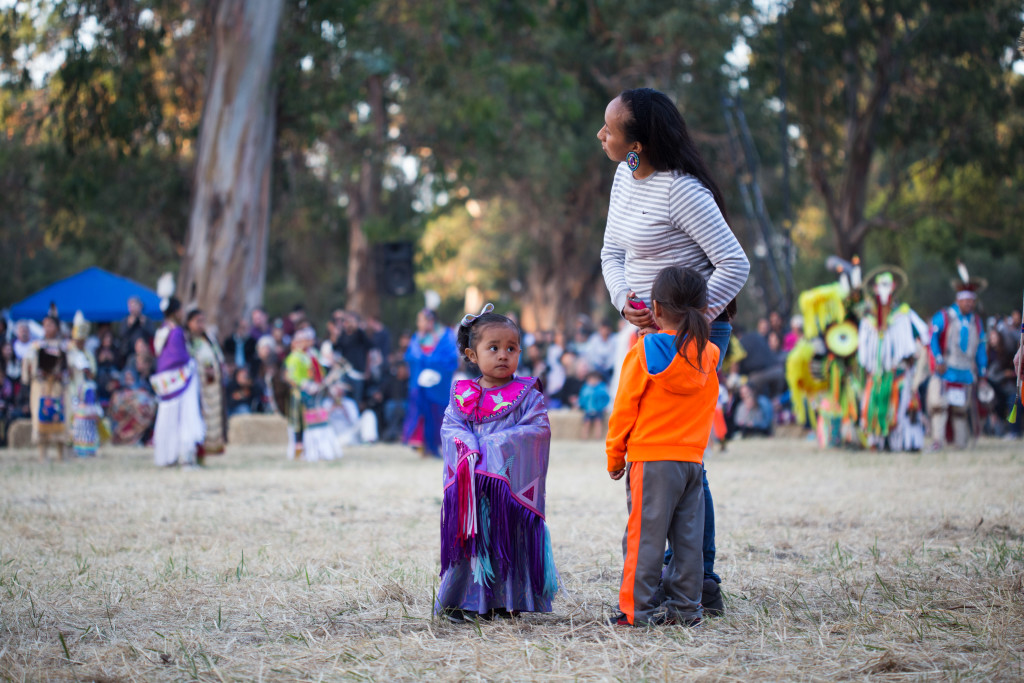A bright eyed, pretentious and uninformed culture writer trying to write about an event she watched but didn’t experience.
She writes the following:
Smiling, beating hearts, beating drums. Warm, dusty circles of pride, of tradition gleam gold. Circles of family, friends, strangers, family of strangers of friends. From regalia to jeans, people wearing different parts of who they are, but all spring from similar rooted, uprooted histories. A loudspeaker announces the Grand Entry and a procession of young and old dance in to the warm circle on belled feet. On warm earth, with beating hearts they pulse.

Intertribal dances start when a Drum begins to sing a song. Anyone who wants to dance can join. The kind of spiritual communion that comes with dancing drifts beyond the ring as Powwow participants and visitors wander from stand to stand. A gold, warm sun gleams as the wind seems to push the attendees along.
Note the use of the words ‘tradition’, ‘earth’, and ‘spiritual’.
Note the extensive use of the words ‘warm’, ‘family’, ‘hearts’, ‘gold’, and ‘gleam’.
Seems to be earnest in descriptions. Yet, romantic earnestness is passé and mildly social evolutionary in the words of observers. Seems to stem from cultural sentimentalization often employed by an “outsider looking in”.
She currently sits on the periphery of the main circle in a worn out lawn chair. Notebook in one hand and twirling her pen between the fingers of the other.
She resumes her writing.
Frybread on electric skillets crackle and charge the air. Wafts of oil and pumpkin make their way to where I sit, on a folding lawn chair. I slowly unfold my hands and uncross my legs and stand to make my way to one of the food vendors. I stand in a line of hungry people. They’re not the angry, self-involved kind of hungry people you may sometimes encounter in a sweaty sandwich shop. They are the kind of hungry people that smile, turn to one another, strangers even, in this line on this hot day, and talk- about the atmosphere, about their lives, about the food.

A sister and brother stand in line before me. The young boy clutches the hand of his older sister. They are both dressed in bright regalia and the boy marches in place along with the beat of the drum group playing in the background. A young girl, around the boy’s age, turns round in the line and looks the siblings up and down. She says to them, “I like your costumes.They’re very colorful.” The boy’s face immediately turns sour and he berates the young girl in saying, “They’re not costumes!” The older sister calmly clarifies, with lines that she’s probably had to say before, “This is our regalia. It’s part of our history, our culture, our art, our identity.”
Oblivious, the young girl begins to ask, “What is ident…?” Yet, before the older girl can respond the mother of the young girl whisks her away. She’s received their food order from the vendor and it’s time to survey the arts and crafts booths.
After placing my order and devouring a good deal of pumpkin frybread, I wander back to my place at the circle. I sit here for the rest of the day, watching and smiling, watching and smiling, and occasionally bouncing my knee to the beat of the drums. And sooner than I would have thought, the sun goes down and the open field clears out. And the vitality I had felt all day seeps from my bones.
Note the way she distances herself from the experience at hand. She is always watching. Never speaking. Never asking questions herself. She interprets what she sees. She uses flowery language, the kind that must be- is- expected of her “culture stories”.
Her observed experience of the conversation of the children in line is heavy-handed. She might even know this. As she writes this excerpt, her body tenses and her left eye twitches.
She “others” at the same time she elevates. She must feel uncomfortable in knowing this. Does she even know to what extent she does this? Does this happen in all her writing? Her writing is her experience, not one of “theirs,” but she makes it seem as if it’s everyones. She compresses individual experiences by universalizing her own observations. By both deconstructing and romanticizing the psychic unity of mankind she flattens not just a culture, but individual people.
But what of her eager sincerity? What of the language she uses? What of its truth? What of its flowery truths? What of its hard ones? What of the people and culture she writes on? What of their honest voices and thoughts? What of their writers? What of “theirs” and “they”? What of “ours”?
These are questions that shall be mulled over further as I sit in my chair and watch her write.
Images courtesy of Alex Tamkin
